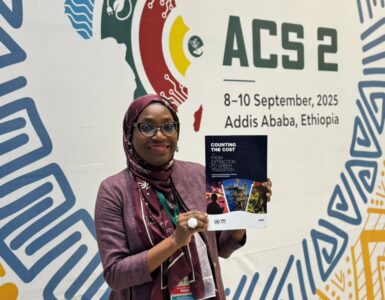A district-specific climate change vulnerability assessments programme has been initiated across Ghana as part of Ghana’s National Adaptation Planning (NAP) programme.
The initiative is part of climate action activities to understand climate impacts at the local level and to build adaptive capacity and resilience to reduce vulnerability.
Speaking to the Ghana News Agency after a stakeholder and data-gathering workshop in Koforidua, in the Eastern Region, Dr. Bob Manteaw, the lead consultant for the district-specific climate change vulnerability assessments programme explained why the initiative was timely and critical.
Dr. Manteaw explained that apart from using the district-specific vulnerability assessment approach to encourage broader community participation in climate action at the local level, it was also a way to explore and understand climate impacts manifestation in local communities and to assess the levels of vulnerability.
Explaining further, Dr. Bob Manteaw, who is the Founder and Principal of Foresight Planners and Research Africa, indicated that “Climate change impacts are place and context-specific and it is important that the unique attributes of places are carefully studied and understood to inform the development of appropriate adaptation responses”.
The initiative, he explained was part of Ghana’s overall plan to address the challenges of climate change at the local level by building adaptive capacity at all levels and across sectors.
Dr. Manteaw added that “This initiative is part of Ghana’s climate adaptation strategy and also a part of Ghana’s commitment to international climate agreements which require all Parties to the UNFCCC to develop national adaptation plans.
“Foresight Planners is excited to lead this process by working collaboratively with community members and other organizations. Indeed, just as our organization’s name suggests, adaptation planning is about being proactive; it is about by imagining plausible futures and preparing for such futures in the present”.
Dr. Bob Manteaw who is also Senior Research Fellow and Lecturer in Climate Adaptation Governance and Sustainability Transitions at the Center for Climate Change and Sustainability Studies at the University of Ghana, praised Ghana’s development partners, the government of Ghana and the Assemblies for supporting such an initiative.
The Koforidua event is only one of several such events that have already happened across the country.
It brought diverse stakeholders together to discuss climate change impacts and vulnerability issues at the district level.
According to Dr. Manteaw, “focusing on individual districts is way to dispel any assumption that climate change impacts are homogeneous and that adaptation strategies can be one-size-fit all. That is not true, and any such assumptions could deepen vulnerabilities”
He emphasized the need for social learning and participatory planning approaches that allow diverse stakeholders to share knowledge and to co-produce new knowledge to build adaptive capacity and resilience.
Dr. Bob Manteaw again noted that, “Ghana, like many other African countries is experiencing climate change impacts in many ways and across sectors. Such impacts make us all vulnerable and it is important that we are deliberate in our exploration of such impacts to understand our vulnerabilities and to take proactive actions”.
Speaking at the same event, The Municipal Chief Executive Officer of New Juaben South Municipal Assembly, Isaac Appaw-Gyasi expressed his appreciation of the initiative and pledged his support to the consultant team.
He indicated that “The Koforidua township was fast-urbanizing and the implications for climate change impacts had already become visible in many areas. Such efforts to explore our vulnerabilities and to take proactive actions are welcome and will be fully supported by the Municipality”.
The initiative which is funded by the NAP Global Network and the International Institute of Sustainable Development is currently underway in some selected districts with a view to cover all districts in the very near future.
Source: GNA






